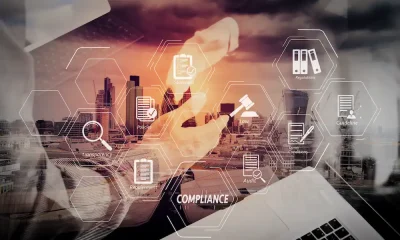Management
Health & Safety in the Workplace: 10 things your startup needs to know
The UK’s health and safety regulations are in place to protect both the employer and the employee. Many of these rules are based on common sense, but have to be followed by law and must be made clear to everyone who enters the workplace. Here are 10 things you need to know, to ensure your startup meets the required regulations:
The UK’s health and safety regulations are in place to protect both the employer and the employee. Many of these rules are based on common sense, but have to be followed by law and must be made clear to everyone who enters the workplace (check out this interactive e-book concerning OSHA safety guidelines to help further create a safe working environment) Here are 10 things you need to know, to ensure your startup meets the required regulations:
Risk Assessment
Every workplace has its own dangers, and to prevent anyone having an accident the employer should carry out a risk assessment. Going around your premises and listing any potential problems is part and parcel of the risk assessment process.
For example, many companies will use castors to move equipment around a warehouse instead of making workers carry heavy items; therefore these should be checked to confirm that they’re in perfect working order.
Fire safety
It is important that your business premises has clearly marked fire exits and alarm systems. The Health and Safety Executive (HSE) website will give you all of the current safety regulations that a company needs to follow. Your workspace must also have fire extinguishers, which are tested on a regular basis.
Signage
Whatever type of business you run it’s important that you have all the relevant signage in place. For example, if you are running a kitchen you should have signs showing what water is for drinking or if something is hot and fire alarms should be clearly marked.
Insurance
The Citizens Advice (CA) website gives guidance on the types of insurance needed if you are starting a small business or becoming self-employed. The employer’s liability insurance will protect you against claims made by an employee if they have an accident.
Protective equipment
There are wide ranges of jobs that require the use of personal protective equipment (PPE). This could be a doctor wearing gloves and eye protection to builders wearing hard hats. These items should be provided by the employer and are necessary for many trades.
First aid
It is always advisable to keep a well-stocked first aid box in your workplace. The type of kit will depend on what form of work your employees carry out. If your company has heavy machinery then you will need an extensive first aid kit available. You should also have a trained and certified first aid employee.
Training
All of your staff should be given adequate training in health and safety. If your business is low risk then basic instructions will be enough, but larger more dangerous workplaces will need someone who is fully trained.
Workers’ welfare
The health and safety regulations are there to protect workers as well as employers, but the employee must also take some responsibility. Alcohol and drugs in the workplace are a dangerous mixture and should never be tolerated.
Electrical safety
All businesses use electrical equipment and cables can be a trip hazard, as well as having the potential for electric shock. Appropriate signs and keeping cables hidden will prevent any accidents. Exposed cables are against the law.
Workplace transport
Every year there are many accidents involving vehicles, forklift trucks and other moving equipment. It’s important that the correct training and warning signs are in place. Safety is important.






